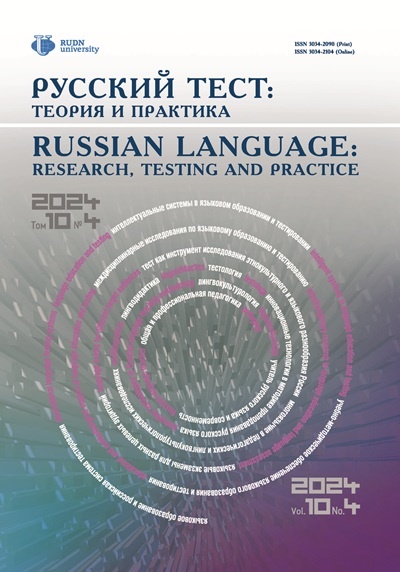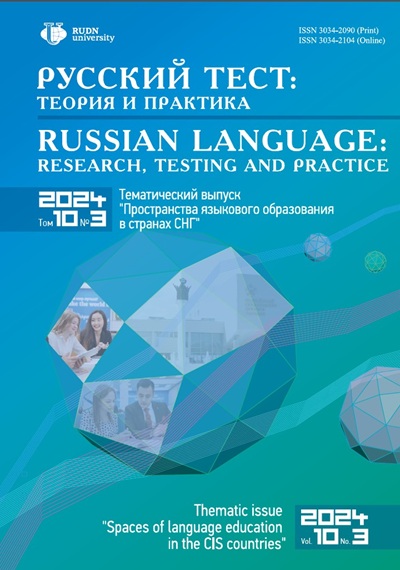From the editors
- Authors: - -
- Issue: Vol 10, No 3 (2024): Spaces of language education in the CIS countries
- Pages: 152-155
- Section: Articles
- URL: https://macrosociolingusictics.ru/russian-test/article/view/44539
- ID: 44539
Cite item
Full Text
Abstract
Full Text
In the context of the changing global sociolinguistic landscape, the Russian language stands out as a vital means of communication and cultural expression among the countries of the Commonwealth of Independent States (CIS). In 2024, the fruitful cooperation of the Russian Language Institute of RUDN University with the universities of Kyrgyz Republic, the Republic of Azerbaijan, the Republic of Armenia, the Republic of Belarus, the Republic of Kazakhstan, the Republic of Uzbekistan, and the Republic of Moldova continued on topical issues of studying the Russian language, literature, and culture, and promoting the Russian-l anguage education programs. The purpose of the thematic issue of the journal is to highlight the results of the research on the multifaceted role of the Russian language in the education and culture of the peoples of the CIS countries, and to exchange best and effective practices in teaching the Russian language in a multicultural educational space. In this thematic issue of the journal, we present articles by the researchers who touch upon current issues of the functioning and teaching of the Russian language in these countries from the perspective of socio- cultural adaptation, and its role in the formation of national and cultural identity, as well as the issues of bilingualism and digital linguodidactics. The first section “Language education: educational and methodological support” FROM THE EDITORS provides a comprehensive overview of the resources and strategies used by teachers to improve the quality of teaching Russian in the CIS countries. This section emphasizes the importance of teaching materials and methods that correspond to the level of the language proficiency of students. The next section “Russian language in professional education” examines the issue of developing students’ functional literacy, which will help expand the opportunities for professional growth of Russian language teachers. The article from the section “Language education and testing” examines testing as one of the effective forms of control in Russian language lessons in Uzbek schools, emphasizes the need to create reliable assessment systems that would correspond to the changing of language education character towards the cultural component in diagnostic texts, especially in the era of rapid development of digital technologies. Interdisciplinary research is crucial for understanding the complexities of language education. The articles in the section “Interdisciplinary studies in language education” demonstrate how promising research methods from various humanities can enrich the theory and practice of language teaching. Русский тест: теория и практика. 2024. Т. 10. № 3. С. 152-155 Traditionally, the journal presents the linguacultural approach to teaching Russian, the influence of national images on language learning, and the importance of bilingual education based on an understanding of interlingual differences. The list of current research agenda includes the study of the role of text and translation in the educational process in a multilingual society of Kazakh, Kyrgyz, Moldovan and Azerbaijani multicultural environments, the importance of developing the sociolinguistic competence in the professional education of teachers. The section “Linguocultural adaptation in teaching the Russian language” examines innovative pedagogical approaches that consider the unique linguistic and cultural characteristics of students in the CIS countries. In this thematic issue, we present the Days of Linguocultural Studies - the event held at the Institute of Russian Language of RUDN University, where scientists and teachers gather to share the ideas and achievements in this field. This event serves as evidence of the viability and continuous development of Russian studies in the context of a variety of ethnocultural landscapes. We invite you, dear colleagues, to contribute to the further development of language education, and provide a scientific and methodological platform for Russian specialists, the teachers of Russian as a foreign language, postgraduate and master’s students.×
References
Supplementary files








